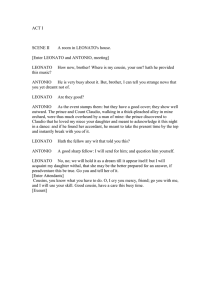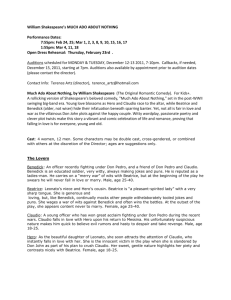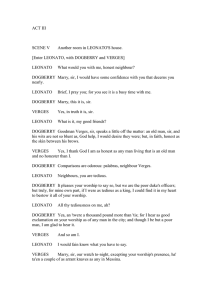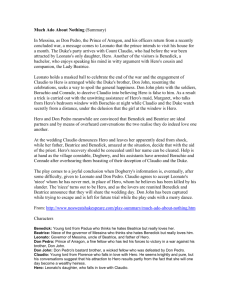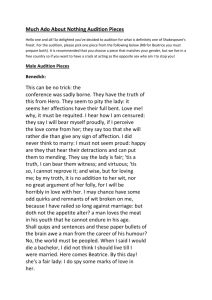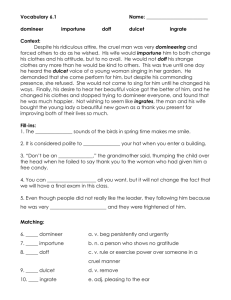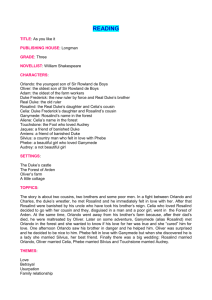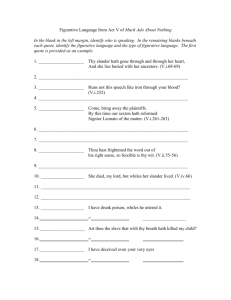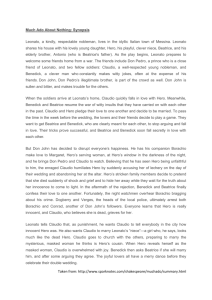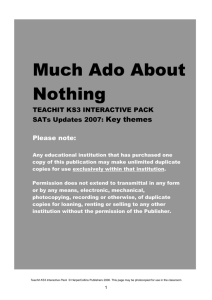Caught Ya Much Ado #2 rev
advertisement
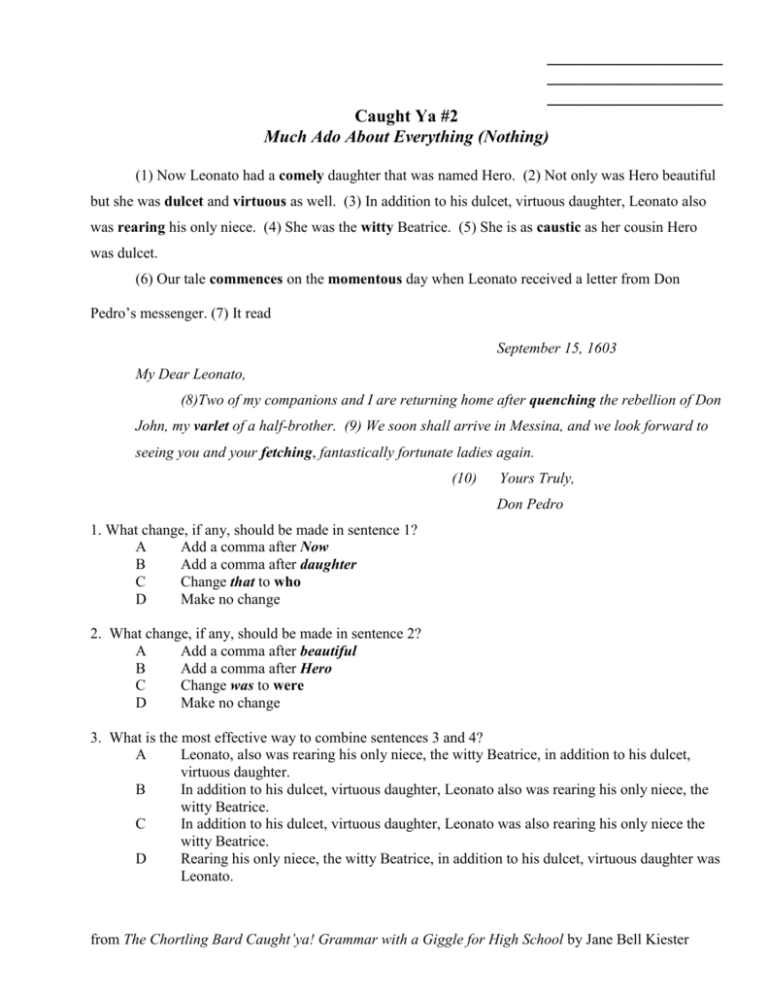
____________________ ____________________ ____________________ Caught Ya #2 Much Ado About Everything (Nothing) (1) Now Leonato had a comely daughter that was named Hero. (2) Not only was Hero beautiful but she was dulcet and virtuous as well. (3) In addition to his dulcet, virtuous daughter, Leonato also was rearing his only niece. (4) She was the witty Beatrice. (5) She is as caustic as her cousin Hero was dulcet. (6) Our tale commences on the momentous day when Leonato received a letter from Don Pedro’s messenger. (7) It read September 15, 1603 My Dear Leonato, (8)Two of my companions and I are returning home after quenching the rebellion of Don John, my varlet of a half-brother. (9) We soon shall arrive in Messina, and we look forward to seeing you and your fetching, fantastically fortunate ladies again. (10) Yours Truly, Don Pedro 1. What change, if any, should be made in sentence 1? A Add a comma after Now B Add a comma after daughter C Change that to who D Make no change 2. What change, if any, should be made in sentence 2? A Add a comma after beautiful B Add a comma after Hero C Change was to were D Make no change 3. What is the most effective way to combine sentences 3 and 4? A Leonato, also was rearing his only niece, the witty Beatrice, in addition to his dulcet, virtuous daughter. B In addition to his dulcet, virtuous daughter, Leonato also was rearing his only niece, the witty Beatrice. C In addition to his dulcet, virtuous daughter, Leonato was also rearing his only niece the witty Beatrice. D Rearing his only niece, the witty Beatrice, in addition to his dulcet, virtuous daughter was Leonato. from The Chortling Bard Caught’ya! Grammar with a Giggle for High School by Jane Bell Kiester 4. What change, if any, is needed in sentence 5? A Change is to was B Add a comma after caustic C Change she to he D Make no change 5. What is the most effective way to revise sentence 6? A Leonato received a letter from Don Pedro’s messenger on the momentous day when our tale commences. B On the momentous day Leonato received a letter from Don Pedro’s messenger, our tale commences. C On the momentous day when our tale commences, Leonato received a letter from Don Pedro’s messenger. D Leonato received a letter on the momentous day when our tale commences and it was from Don Pedro’s messenger. 6. What change, if any, should be made in sentence 7? A Change It read to It read: B Change It read to It read, C Change Leonato, to Leonato: D Make no change 7. Which transition could best replace the first and in sentence 9? A by the way, B therefore, C on the other hand, D in fact, 8. What change, if any, should be made in sentence 10? A Change Truly, to Truly: B Change Truly to truly C Change Don to don D Make no change Definitions – Try to define these words using context clues. The words are bold in the sentences. You may use a dictionary if needed. 9. comely – 15. commences - 10. dulcet – 16. momentous – 11. virtuous – 17. quenching - 12. rearing - 18. varlet – 13. witty – 19. fetching – 14. caustic Literary device – Write an example from the passage for each of the following. If you do not know the meaning of the device look it up. 20. alliteration – from The Chortling Bard Caught’ya! Grammar with a Giggle for High School by Jane Bell Kiester
